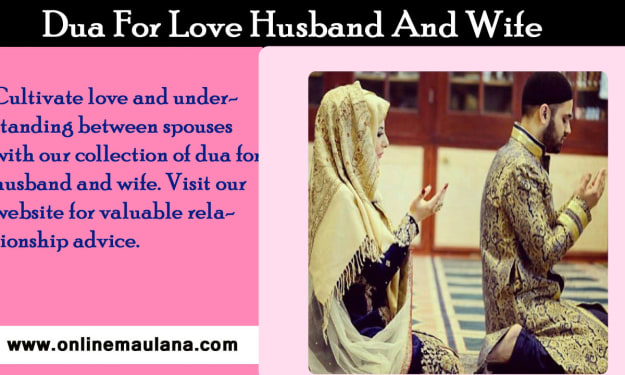APPROACHES TO A HEALTHY ROMANTIC RELATIONSHIP
Enhancing Emotional Intimacy: Techniques to Connect on a Deeper Level in Your Relationship"

create wholesome relationships.
Researchers would concur as well.
Many of the characteristics of healthy relationships have been discovered in the corpus of research on romantic relationships, which is why I just gave you a list of them.
Researchers also agree on the characteristics of unhealthy relationships, including constant conflict that prevents you from reaching a resolution, the inability to turn to your partner for assistance when you need it, scorn, criticism, hatred, and violence.
These issues can result in serious unhappiness when they arise in romantic relationships.
They literally make people physically and emotionally ill, and they can cause relationships to end and divorces to occur.
This is why having wholesome relationships with others is so important.
However, there is a problem: how many people actually know what to do on a daily basis to build wholesome relationships?
My argument is that while we may be aware of what a healthy relationship entails, few people are aware of how to find one, and nobody ever instructs us on how to do so.
People need to be taught how to form wholesome connections.
You know when we usually do it, right? once it is too late.
It's referred to as couples counselling.
Couples therapy, which I provide, can be quite beneficial.
However, a lot of people have issues and habits that are so deeply rooted when they enter couples counselling that they are unable to modify them.
Too late now.
You know when else we try to impart this knowledge to people?
just before their wedding.
It is known as premarital counselling.
Teaching people how to have a healthy relationship while they are still joyful is an excellent concept, too.
And it's feasible.
However, I believe that it is still too late.
Why?
because people already know who they want to spend the rest of their lives with.
What if they made a terrible choice?
No amount of premarital counselling can compensate for a poor partner selection.
Because they neglect to address these three crucial issues, the methods we have used to teach people how to have healthy relationships have been limited. These methods include: genuinely understanding what you want and need in a partner and a relationship; choosing the ideal person; and developing and using skills from the start.
I'm not referring to the start of any specific romance.
I'm talking about starting from scratch as soon as feasible.
People need to be taught how to develop healthy relationships, especially the younger generation.
To that aim, my colleagues and I have created a skills-based model of relationship functioning that we believe can assist people in creating the things that lead to healthy relationships while reducing the behaviours that lead to bad ones.
We've identified three abilities that constitute what we term romantic competence: insight, mutuality, and emotion control.
Romantic competency refers to the capacity to function adaptively throughout all domains or stages of the dating or relationship process, including identifying needs, locating compatible partners, forging wholesome connections, and ending toxic relationships.
In a moment, I'll go into greater detail about the skills, but first, allow me to emphasise that this isn't something we made up on the spot.
Based on a thorough assessment of theory and research, we were able to identify the skills.
And the abilities actually capture what the main theories and studies on healthy relationships have in common.
We believe they can truly help people with all the many relationship-related processes and with all different people, whether or not they are in a relationship, because they represent the commonality.
So allow me to describe the talents to you.
Insight is the first.
Awareness, knowledge, and learning are all components of insight.
As a result, with insight, you'll have a deeper understanding of who you are, what you need,
What you want and the reasons behind your actions.
Let's imagine you are speaking to your partner in a very abrasive manner.
If you have insight, you might realise that you're genuinely experiencing significant work-related stress rather than something your partner is doing.
To prevent it from spilling over into your relationship, what you really need to do is to calm down a bit.
You'll get to know your companion better as a result of insight.
Let's say your date's partner is running late.
With knowledge, you'll understand why.
For instance, it's possible that your companion is perpetually late.
Nothing to do with you or your relationship.
Your partner is just the way they are.
You'll be able to foresee both the favourable and unfavourable effects of your actions if you have insight.
For instance, you will be aware that sending that offensive SMS will not end well.
Maybe you should call someone instead.
With insight, you'll be able to draw lessons from your errors and act differently in the future.
So perhaps you'll realise that you have a propensity to leap in headfirst, get swept up in the romanticism of things, and then things don't work out.
You may then say, "Well, you know what, the next time I'm just going to take things a bit more gently and not repeat the same mistake.
Additionally, with awareness, you'll know more clearly what's best for you in a relationship.
You might be the type of person who requires a monogamous union.
Your partner seeing other people is not acceptable in your eyes.
Alternatively, you can come to the realisation that you're not yet ready to settle down and that you need a partner who understands that.
So that's knowledge.
The second ability is reciprocity.
Knowing that both parties have wants and that both sets of needs are important is what mutuality is all about.
Through mutuality, you'll be able to express your requirements clearly and directly, increasing the possibility that they'll be met.
Consider the scenario when you have to attend a very stressful family gathering and would like your partner to join you.
You might be direct and say, "You know this will be stressful for me.
You'll be a great buffer for me, therefore I'd really love for you to be there.
Can you possibly make time in your schedule to accompany me?
You'll be ready to accommodate your partner's wants if there is mutuality.
Consider the scenario when you are aware that your partner enjoys going to the gym first thing in the morning since it makes them feel better throughout the day.
Even though you'd really prefer for your lover to stay at home and sleep with you in bed, mutuality will allow you to be willing to assist your partner in this.
Additionally, mutuality enables you to consider both parties' needs when making decisions regarding your partnership.
Let's imagine you receive a fantastic job offer that you would like to accept, but you are aware that it would need more work and that quality time spent with your spouse is crucial for both of you.
You may say, "You know, I'd really like to take this job, it's really important to me, but I also am concerned about us spending time together," in a mutually agreeable manner.
Will you let me take this job if I agree to set aside some time for us?
A mutual attitude to partnerships would be that.
The third ability is control of one's emotions.
Additionally, emotion control refers to controlling your emotions in response to events that occur in your relationship.
You can control your emotions by using this technique.
Keep your emotions in check and keep the events in your relationship in context.
You may therefore think, "Oh, my goodness.
This is a catastrophe! The worst thing to ever happen!
How will I approach this?
You'll think, "You know what, I can handle this," when you have emotion regulation.
Everything will work out just fine.
There is a solution to this problem. I'll work things out, I promise.
Everything will work out OK.
With better emotion control, you'll be able to put up with painful emotions without impulsively acting on them, which will help you make more informed decisions.
Let's imagine that you are awaiting your partner's text reply.
You're feeling quite anxious and checking your phone every two seconds, but that text hasn't arrived.
You'll be able to tell yourself things like, "You know what? Settle down.
The text will eventually arrive.
I won't need to check my phone constantly; I'll just put it aside and concentrate on what needs to be done.
Additionally, by controlling your emotions, you'll be able to stay committed to your needs and keep your self-respect even when unpleasant things happen in your relationship.
Let's say you break up with someone.
You're experiencing severe depression and intense loneliness without your companion.
You'll be able to tell yourself it's OK with emotion control; yes, you'll experience depression, but you'll get over it and get through this.
You won't feel good about yourself and won't even want to be in a relationship that wasn't healthy for you if you beg and plead to be back together.
Insight, reciprocity, and emotion control.
I think it has to do with people's capacity to apply the knowledge on a regular basis.
that enables them to form wholesome relationships.
So allow me to illustrate how this works with an example.
I was talking to someone the other day, and she revealed that she told her partner she didn't want anything for her birthday when he asked her what she wanted.
so what's that? She received nothing.
And she became quite irate, leading to a major altercation.
Why?
She really didn't want to tell him; she just wanted him to somehow know that she genuinely desired a gift.
It's known as mind reading.
It's a bad notion that never succeeds.
She would have known herself well enough to realise that she truly did want something, and that if she didn't get it, she was going to be angry, if she had been applying the skills.
She would have known that her partner was the type of man who would just accept everything she said literally if she had had the benefit of hindsight.
She could have asked for what she wanted simply and unambiguously if there had been mutuality.
Emotional control would have enabled her to deal with any feelings that were impeding her from accomplishing it.
Therefore, it's possible that she was experiencing some anxiety: What would he think if I asked for what I needed?
Or perhaps, you know, she was feeling guilty.
She is aware that they are saving for a significant vacation, but she may have mistakenly believed that he would view her as being rather conceited.
Therefore, if she had employed the abilities, she could have said, "You know what?
I am aware that we are saving for the vacation, but I truly like the inexpensive jewellery we saw the other day.
For her, he would have obtained it.
She would have experienced respect and worth.
He'd have been content.
It would have been more personal.
Instead of resulting in a dispute that may seriously harm their relationship, this entire birthday present situation would have gone smoothly.
This was only anecdotal, after all.
We also have evidence for this.
I've been researching young people's romantic competence—their capacity to employ mutuality, insight, and emotion control.
In one of our studies, we examined early teenage girls between the ages of 13 and 14, and we discovered that girls who were more romantically capable
felt more assured in their connections.
They had no fear of being rejected, they felt safe with others, and they could trust them.
Less depressive symptoms were reported by girls who are more romantically capable, and they also had better mental health.
They also had more hopeful hopes for marriage in the future and were more confident that it would work out.
Girls who were more adept at romance were more likely to engage in age-appropriate romantic activities including dating, flirting, and intimate gestures like hugs and kisses.
Furthermore, girls who were more romantically competent tended to engage in less sexual activity that may be viewed as dangerous for a 13 or 14-year-old girl, such as sexual intercourse.
Therefore, even when these girls were young—13 and 14 years old—and most weren't even in relationships, the more romantically competent they were, the more adaptive relational functioning they displayed, and the better mental health they displayed.
The same issues affect 18 to 25 year old young adults:
Men and women who are more skilled romantically feel more secure in partnerships.
Additionally, they claim to make wiser decisions, recognise warning signs when things aren't going well, and do so with assurance.
Additionally, they are more adept at seeking out and offering support to their relationships.
As a result, they are more eager to ask for what they require and utilise what their partners provide.
Additionally, when assistance is required, they are more adept at doing so.
And we didn't just take their word for it; in our lab, when we asked them to discuss a personal issue, we saw them actually doing this.
Young individuals who were more romantically skilled also felt happier and more fulfilled in their relationships.
Again, they reported lessening their anxiety and depression symptoms.
Overall, stronger, more adaptive relationship functioning and more personal well-being are both correlated with early romantic competence.
This takes me back to my earlier argument that people should be taught how to form healthy relationships.
So, as I said earlier, while we may be aware of what a good relationship entails, the most of us are unaware of how to find one, and nobody ever teaches us how to do so.
And that's a difficulty.
People require our assistance in honestly understanding their needs and wants in a relationship.
They require our assistance in choosing the best partner.
We must support kids in making wise choices and overcoming the difficulties that come with relating to others.
We also need to support them from the start in developing and using skills.
This is the primary idea behind the concept of romantic competence.
In order to decrease the behaviours that cause unhealthy relationships, such as fighting, inadequate support, anger, criticism, disdain, and violence, it is important to use understanding, mutuality, and emotion management.
And foster the conditions that foster healthy relationships, such as closeness, security, respect, effective communication, and a sense of value.
And wouldn't this be good for all of our relationships?
They certainly seem to.
About the Creator
chukwuka ifechukwude
My writing encompasses a wide range of topics, including lifestyle, travel, technology, health, and personal development. I am adept at conducting thorough research, ensuring that my articles are not only informative but also reliable.





Comments
There are no comments for this story
Be the first to respond and start the conversation.